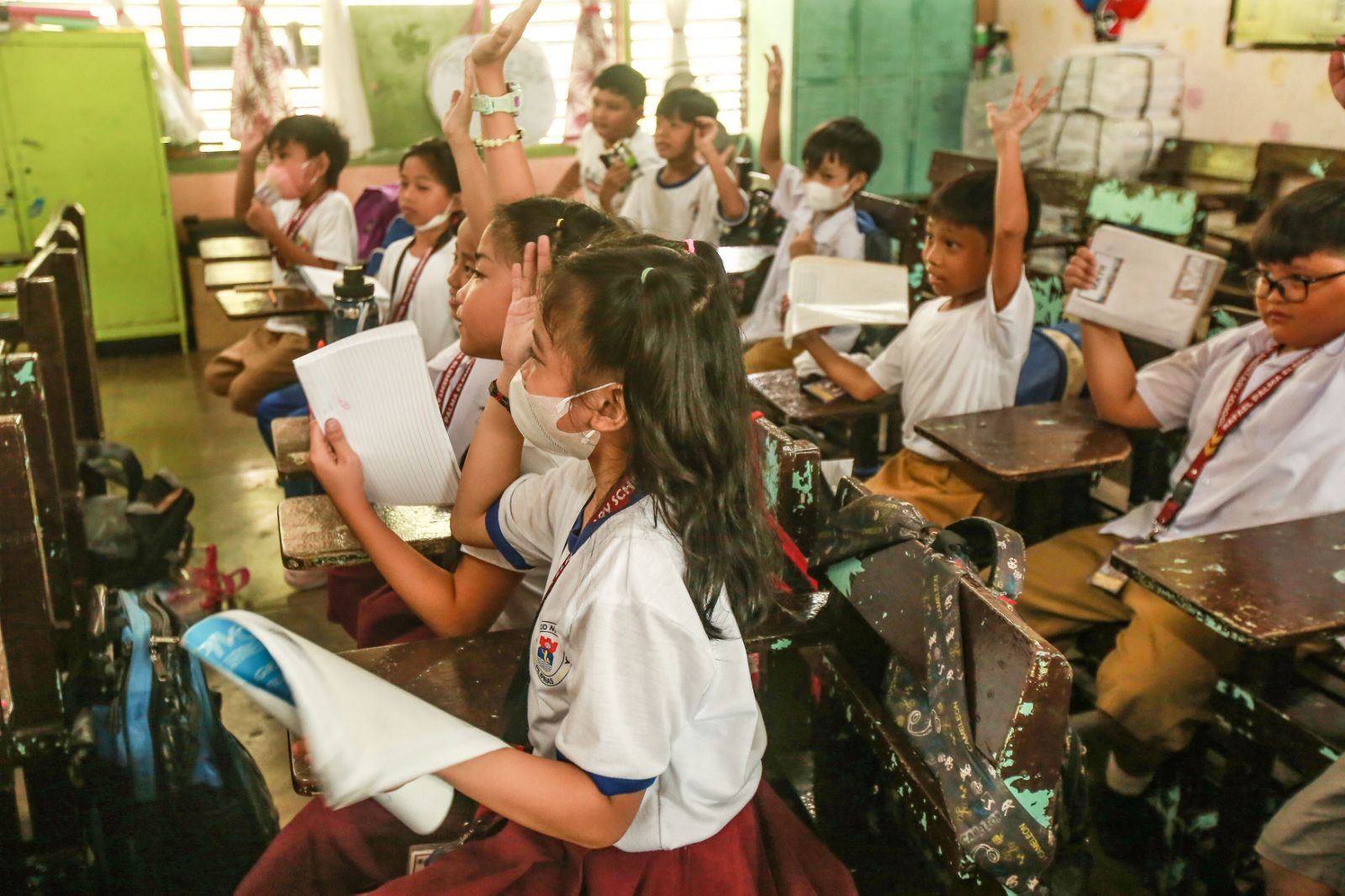DepEd grants schools flexibility to implement various measures amid extreme heat
Aside from the suspension of classes, the Department of Education (DepEd) allowed schools to implement several adjustments to ensure the safety of students and learners amid unfavorable weather conditions such as extreme heat.

“Pagdating naman sa relaxation sa pagsusuot ng mga uniporme sa mga schools na nag-require ng uniporme, ay pinapayagan muna natin na hindi magsuot ng uniporme na prescribed ang ating mga mag-aaral (When it comes to relaxation in wearing uniforms in schools that require them, we allow our students to temporarily not wear the prescribed uniform),” DepEd Deputy Spokesperson and Assistant Secretary Francis Bringas said in a radio interview on March 14.
In areas where extreme heat is experienced, Bringas said students are allowed to wear “more comfortable and cooler attire” as long as it remains “decent and maintains proper decorum.”
Properly-ventilated schools
Meanwhile, Bringas assured that public schools nationwide are “properly ventilated” since they need to adhere to the design prescribed by the government.
“Yung ating mga schools naman kasi may talagang designs ang ating mga classrooms na iyan at properly ventilated because of windows na naka-design sa ating mga classrooms (Our schools have designs for our classrooms and are properly ventilated because of the windows designed in our classrooms),” Bringas explained.
However, he recognized that when the heat becomes unbearable additional ventilation such as electric fans is needed.
“So magpo-provide talaga ang ating mga schools ng additional electric fans pagdating sa tag-init na gaya nito (Our schools will provide additional electric fans during the summer heat like this),” he added.
Citing data from the Philippine Atmospheric, Geophysical and Astronomical Services Administration (PAGASA), Bringas said that DepEd is also taking note of the regions with expected dry spells.
Bringas explained that certain regions like Region 2 and the Cordillera Administrative Region (CAR) are being monitored. But the most affected as of date, he said, is Region 6 or Western Visayas, particularly in Negros Occidental, where classes have been suspended early this week.
As of March 14, Bringas said that most of the schools in Negros Occidental that have suspended face-to-face classes have already resumed except for those still suspended, particularly in Iloilo City and some parts of Palay City.
Adjustments of teachers, students
Bringas said that DepEd schools have already anticipated extreme weather conditions due to PAGASA’s announcement of El Niño.
Just like last year, Bringas said that schools were allowed to implement “automatic shifting” where learning delivery modes are adjusted.
“Alam na nila ang dapat gawin diyan at kung paano ibibigay na lang sa mag-aaral yung kanilang self-learning materials, may mga nagse-set up ng online classes if they are capable, meron din nagbibigay ng extra assignment sa ating mga mag-aaral based on textbooks nila (They already know what to do there and how to provide self-learning materials to the students. Some have set up online classes if they are capable, while others are giving extra assignments to our students based on their textbooks),” he added.
Based on its existing policy, DepEd said school authorities are allowed to implement suspension of classes based on their “careful assessment” during extreme weather conditions.